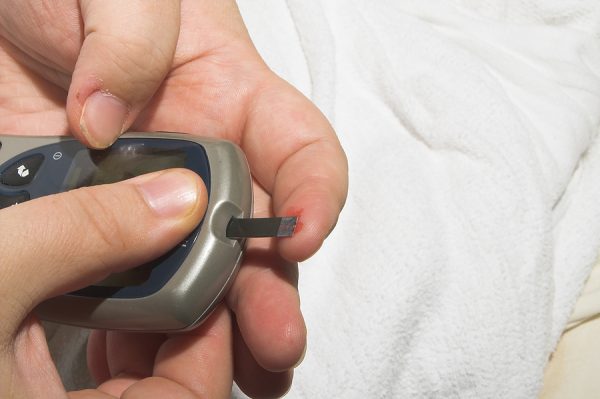By David Blyweiss, M.D., Advanced Natural Wellness
Two of the main reasons people avoid sugary foods is to minimize weight gain and maintain healthy blood glucose levels.
What most people don’t realize is that sugar isn’t the only type of food that interferes with your weight and blood sugar.
Let’s say you gave up donuts. We all know they’re loaded with sugar. Then dipped in more sugar. And then topped with more sugar. So giving donuts up is a great place to start.
What do you replace your donuts with? Something less sweet, right? Probably a bagel. Maybe a muffin.
But neither of these are good replacement options, because they contain rapidly digestible starches (refined carbohydrates) that quickly increase your blood glucose just like sugar does. Plus, they’re just as fattening and contribute to heart disease.
So if you’re worried about your weight, blood sugar, diabetes or heart disease, reaching for the less sugary option isn’t always going to do you much good.
Is High Blood Sugar Making Your Muscles Ache?
High blood sugar is never a good thing. And it might even be responsible for some of those achy muscles that seem to plague your body.
You see, when your glucose levels are high, the muscles in your body can’t repair themselves. This might come as a surprise since we always hear that sugar fuels muscle activity.
But when it comes to muscle repair, skeletal muscle recruits satellite cells – a special type of stem cell – to help repair the damage and retain muscle mass. So you want plenty of satellite cells to heal those muscles.
Unfortunately, satellite cells don’t grow very well in a high glucose environment. However, when glucose levels are reduced, they flourish. And they work 24/7 to repair and regenerate all of the wear and tear our muscles take on a daily basis.
So glucose levels play a big role when it comes to the fate of these muscle-specific stem cells. That goes a long way in explaining why patients with diabetes are prone to muscle loss as they age!
Diabetics are also prone to the development of peripheral neuropathy. And again, you can blame glucose. It damages the nerve fibers and gets into the myelin sheath that protects your nerves. This can place you in a very uncomfortable situation, with tingling, numb or painful extremities.
Foods that Won’t Spike Your Blood Sugar
One of the best things you can do to reduce your blood sugar, ward off diabetes, prevent peripheral neuropathy and ease those aching muscles is to watch out for the foods that are going to send your glucose levels soaring.
It’s easy to spot a lot of the foods that will do that. Sugar, candy, cakes, pastries, chips, cookies, jams and syrups are all going to raise rapidly raise your blood sugar.
But other foods might not be as obvious. So you’ll also want to watch out for them.
Most breads, breakfast cereals, dried fruit, French fries, rice cakes, Chinese foods and teriyaki dishes are horrible for you. They are going to quickly spike your blood sugar.
You want to avoid these foods and stick with natural carbohydrates that release sugar slowly.
So instead of that donut, bagel or muffin, try some plain Greek yogurt with nuts and low glycemic fruits – like apples, apricots, berries, peaches, pears, plums – mixed in.
Instead of rice, pasta or potatoes, use beans as a side dish. Trade in your chips for nuts, and your soft drinks for water or green tea. Choose whole fruits instead fruit juices. Replace high glycemic grain products with those that are friendlier to your health. (I personally recommend sticking with gluten-free grains such as buckwheat, millet and quinoa.)
These healthy carbs will fuel your body with energy, help you maintain healthy glucose levels and repair your aching muscles!
Sources:
Schwarz PEH, Timpel P, Harst L, et al. Blood Sugar Regulation for Cardiovascular Health Promotion and Disease Prevention: JACC Health Promotion Series. J Am Coll Cardiol. 2018;72(15):1829-1844.
Furuichi Y, Kawabata Y, Aoki M, Mita Y, Fujii NL, Manabe Y. Excess Glucose Impedes the Proliferation of Skeletal Muscle Satellite Cells Under Adherent Culture Conditions. Front Cell Dev Biol. 2021 Mar 1;9:640399. Hirata Y, Nomura K, Senga Y, Okada Y, Kobayashi K, Okamoto S, Minokoshi Y, Imamura M, Takeda S, Hosooka T, Ogawa W. Hyperglycemia induces skeletal muscle atrophy via a WWP1/KLF15 axis. JCI Insight. 2019 Feb 21;4(4):e124952.






